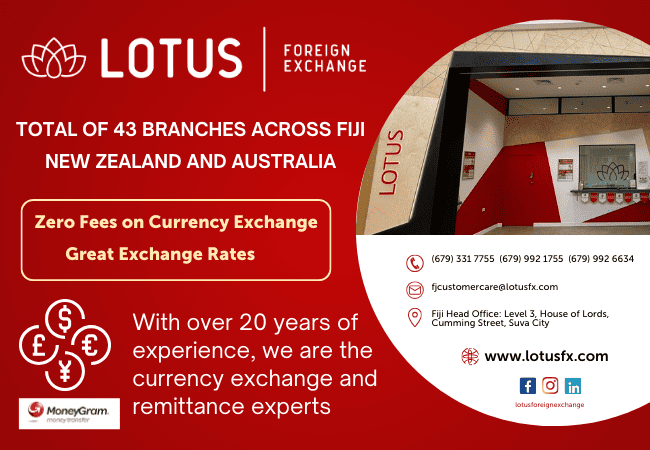The Rise Beyond the Reef story
By Ariela Zibiah
Salanieta Utobota, and her husband can plan for their children to attend boarding schools and complete university education confidently, while sitting in their Bukuya home in the highlands of western Viti Levu. That they are able to plan for all four children’s education without having to leave home is enormously satisfying, she says.
When Salanieta married Solomoni some 20 years ago, their only source of cash was from taking any surplus from their subsistence farm down to the market on Thursdays or Fridays. She would stay at the market until Saturday, or until everything was sold.
That changed with an introduction to Rise Beyond the Reef.
Rise Beyond the Reef is a well-known brand in Fiji. Its distinctively printed homewares, woven goods, dolls, jewelry and other products are found in the country’s largest hotels, retailers and gift shops, and in the kitchens and homes of many locals. It has a thriving online business and is a favourite of large conference organisers, who often order their stylish and useful handmade tote bags as conference packs.
But Rise Beyond the Reef is much more than what you see in stores and hotel meeting rooms.
Salanieta remembers fondly the first-time co-founders, Janet and Semi Lotawa arrived in her village. What struck her is how the couple and their team “entered each and every house and asked us questions about everyday life, including what we, the women, were good at, the challenges we faced.”
Salanieta’s story is just one of the hundreds of artisans that the Rise Beyond the Reef project works with throughout rural Viti Levu and some coastal areas in Vanua Levu, including Kia Island women, who trace progeny to Tuvalu.
Listening then doing
As Salanieta relates, establishing Rise Beyond the Reef involved talking with women about their creative talents. Women who said they could sew were asked to submit something they had made. For the organisation, this process was about ensuring that their plans would be truly informed by the community, including the women.
Rise co-founder, Janet Lotawa recently wrote: “Lived economic empowerment for women we work alongside, and their communities, requires longer timeframes for programming that is informed by progress on the ground. Transformational change requires beginnings that are rooted in and nurtured by communities we work with. Investing time with those we seek to work with is a prerequisite that most development practitioners overlook.”
Rise Beyond the Reef absorbs artisans’ costs such as leadership stipends, transport costs, materials, etc., which has further strengthened its relationship with some 500 artisans and their 1800 dependents. Doing this right from the start has assured the effectiveness of the producer groups.
Salanieta began her journey with Rise Beyond the Reef in 2014, and she has worked with them ever since. She is part of a team that creates lovely ‘marama’ soft dolls. “We started from nothing, but we have bought more sewing machines. If someone is late, we will share the load, so everyone submits and gets paid together. There are some new women who want to join us, the rest of us help train them, and if they’re a little bit slow, we help,” Salanieta says.
“We have never worked with any other organisation or company: we know Rise’ processes, we know what they want, and we want all our dolls to be accepted by the quality controller, so we all work together to not only meet our orders, but with the highest quality.”
Another collaborator, Alesi Sauvina in Nanuku speaks of how good it feels to see themselves and other women artisans on the covers of magazines, in pamphlets, and on the Rise Beyond the Reef website with their “cakacaka ni liga” (hand crafted products).
“I did not finish school, but this project made me realise that whatever I can do with my hands, I can make a living out of it. I don’t have to be in one office for eight hours and working from home means I get to be here for my children,” Alesi says.
The income that women such as Alesi and Salanieta earn as creatives mean they are able to contribute to decision-making in their households.
Alesi’s husband is a bus driver, however, this work depends largely on the condition of the roads in the hills. Being able to earn as much as $700 to $1000 per submission (of sewn products) means that Alesi can cover the education costs of her three children (one in secondary school and two younger ones in upper secondary school), and the costs of meeting traditional or church obligations.
“My family lived with my parents but with this project, we were actually able to budget for a place and now we have our own home.”
A partnership that works
In any movement, in any village, in any community, there is always an existing table. It is likely that there were more than one. These existing tables were the starting point for Rise Beyond the Reef. It was core to community-building and an approach that should be a fundamental for the development and/or aid sector.
“We should be about connecting, understanding, bridging and building upon the existing tables,” Lotawa has written. “Regardless of what you bring to the table, approach it with the respect it deserves. It has proven itself key to sustainable practices in our partnerships.”
Lusiana Qolikoro, who traces progeny to the Lau Group, is a gifted weaver and sewer. Lusiana has not only been a consistent supplier to Rise Beyond the Reef, but is an example of how the project has also become a knowledge transfer platform.
“I’d been weaving ever since I was child, with my grandmother. Since being married and living in Ba, I have been able to utilise these natural abilities to earn an income and teach others,” Lusiana said.
Rise Beyond the Reef provides each village with one sewing machine and the actual material to use. Groups have now become specialised – so a village can be known as the “turtle” group or “marama dolls”; some production crews are big enough to produce more than one product.
Once complete, the products are usually collected by the district coordinator who then takes them to the quality controller. Once products are accepted, the women are paid.
Sometimes orders come in “short corner” and Lusiana and her team may work through the night, taking turns at the two or three machines available, to meet the order.
It is not all work, mind! There is always giggling and sometimes, sadness, to be shared. The work space has developed into so much more than just an ‘office’. It has become a safe space for women to just talk.
In the same way, Rise Beyond the Reef’s products have multiple functions. They are beautiful souvenirs that demonstrate the skills and creativity of Fijian women and have a contemporary aesthetic at home in modern settings. They are a door to economic empowerment and income for those women and their families. And they are also an example of how “development” projects that take a long-term view, and respect existing tables and contexts are more likely to succeed.
https://risebeyondthereef.org/
This article first appeared in Fiji Traveller, July-September 2023.

